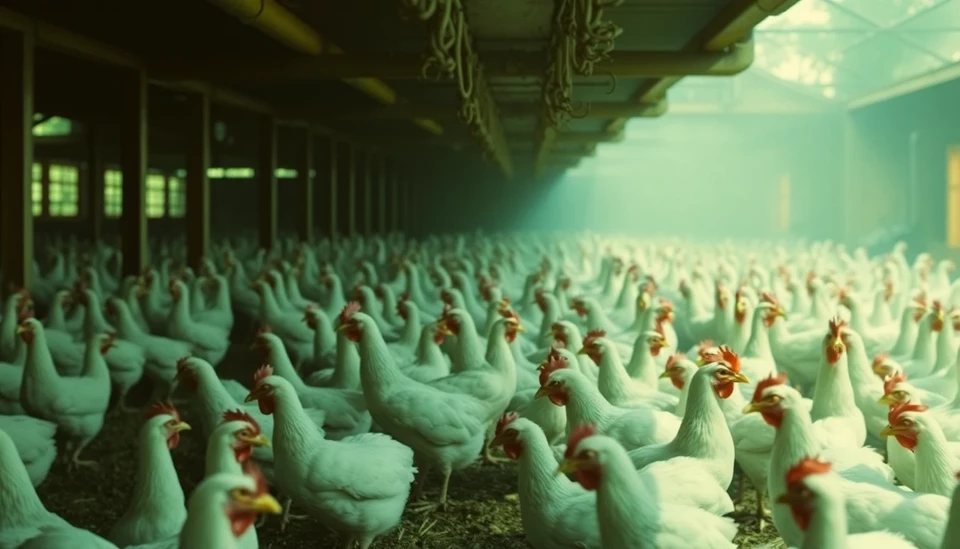
In an age where food sustainability and ethical farming practices are more critical than ever, a new article sheds light on the intricate world of chicken farming. Titled "Beak Capitalism: How Chicken Farming Really Works," the piece delves into the often-overlooked economic dynamics at play in the poultry industry.
At first glance, the chicken farming business may appear straightforward, but a closer examination reveals a complex web of interests and practices that challenge the perceptions of many consumers. The article opens by discussing how processing companies wield significant power over farmers, controlling prices and production levels in ways that can dictate the very livelihood of those working the fields.
Chicken, often considered a staple protein in households across the globe, has become a centerpiece of modern agricultural economics. However, the relationship between poultry farmers and large processing companies is anything but equal. Many farmers are locked into contracts that limit their ability to seek better prices or change suppliers. This practice is commonly referred to as "beak capitalism," a term that highlights how even the smallest aspects of poultry farming—from the feeding of chicks to the transportation of birds—are monetized by larger corporate entities.
Furthermore, the article outlines how these economic practices affect animal welfare. Farmers often find themselves compelled to prioritize production efficiency over humane treatment, leading to overcrowded living conditions and a host of ethical concerns. The conditions under which chickens are raised and processed are explored in great detail, underscoring the pressing need for more transparent supply chain practices and consumer awareness.
Additionally, the financial pressures faced by farmers are examined. Many operate on razor-thin margins and are vulnerable to fluctuations in feed prices, health outbreaks, and regulatory changes. The piece illustrates that, while chicken farming can be a lucrative venture for some, the risks involved and the power imbalances at play can lead to exploitation and hardship for the farmers themselves.
The article wraps up with thoughts on potential reforms and shifts towards more sustainable practices within the industry. It posits that increased consumer awareness and advocacy can play a pivotal role in fostering a more equitable poultry market. In doing so, it encourages readers to reconsider where their food comes from and the broader implications of their choices.
In conclusion, "Beak Capitalism: How Chicken Farming Really Works" offers an eye-opening perspective on an industry that plays a crucial role in global food systems. It serves as a reminder of the importance of ethical considerations in agriculture, urging consumers to engage with and challenge the structures that govern food production.
As we continue to navigate the complexities of modern agriculture, it becomes increasingly vital to support practices that promote both sustainability and fair treatment for all involved in the food supply chain.
#ChickenFarming #BeakCapitalism #SustainableAgriculture #AnimalWelfare #FoodSupplyChain
Author: Laura Mitchell




